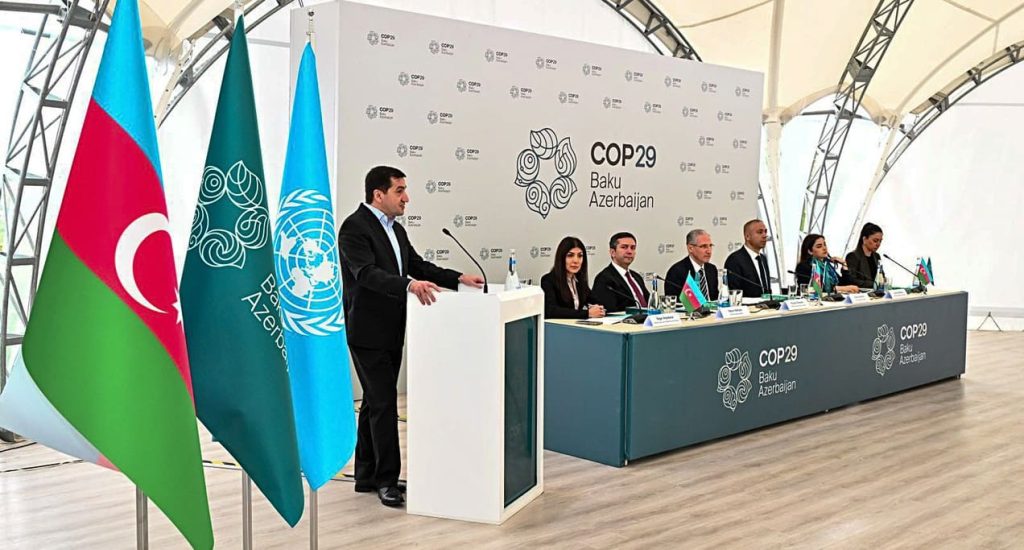The climate crises in Africa have frequent and severe impacts, and COP29 brings these issues to the forefront, with many viewing them as fascinating yet apocalyptic, like the end of the world. Despite contributing insignificantly to environmental degradation compared to developed countries in Europe and North America, Africa faces disproportionately devastating impacts.
Africa’s fragility due to extreme poverty doubles the severity of climate change in the countries. Past Conference of Parties (COPs) have consistently highlighted Africa as the most vulnerable continent to climate change.
The ongoing COP29 in Baku, Azerbaijan (November 11 to 21, 2024) offers an authentic opportunity to address Africa’s vulnerability to climate change through climate finance. The conference presents a chance to rescue over 18 percent of the global population residing in Africa from escalating climate calamities.
The Financing Focus of COP29: Origins and Challenges of Climate Finance
At the heart of COP29 lies a focus on climate finance and addressing global vulnerabilities through discussions and negotiations. However, Africa remains in a dilemma as to whether the results will provide adequate funding to combat its climate change challenges.
While numerous pledges and promises have been made, they often remain non-binding, and no one is held accountable for their fulfilment.
Initially, climate finance relied on voluntary philanthropies. However, establishing the United Nations Framework Convention on Climate Change (UNFCCC) highlighted the urgency of substantial and structured funding to address the rapidly emerging impacts of climate change, specifically to marginalized regions of the global south like Africa.
In the ongoing 11 days of serious negotiations, Africa is awaiting the answers to wipe out the tears from climate change.
Since the 2009 Copenhagen Accord, nations have realized the necessity of a unified financial mechanism to address climate change equitably. The Paris Agreement, the Bridgetown Initiative and the Nairobi Declaration have further reinforced the need for a robust global climate financing architecture.
READ RELATED: Critics Speak Out: Is COP29 Delivering Results or Failing to Provide Real Climate Solutions?
The rising policies now emphasize that major polluters such as the maritime, aviation, and fossil fuel industries should allocate shares of their revenues to support developing countries in combating climate change.
The Uniqueness and Peculiarity of COP29
Hosting COP29, Azerbaijan is a country prominently and historically reliant on fossil fuels as, over the past 20 years, oil and gas have contributed to 40 per cent of the Gross Domestic Product and 90 per cent of the total exports.
Despite this, it has demonstrated its commitment and leads by example in a pathway of genuine transformation towards leaving non-renewable energy aside to embrace renewable energy such as hydro-power, wind, and solar energy with extensive environmental impacts.
Additionally, COP29 features a notable representation of African women and youth in the global committees and delegations. Women’s empowerment is particularly significant, with funding enabling many to participate and, later on, implement climate solutions in their communities.
Also, youth voices have been prioritized, ensuring diversity and inclusivity as an approach to effective negotiations, fundraising, and climate education for present and future generations in combating climate change.
Further, the under-conceived commitment to loss and damage compensation has opened doors for its implementation to mitigate the impact of climate change on communities.
The round table discussions at COP29 on loss and damage compensation have advanced, focusing on providing tangible support to developing countries affected by climate change.
The role of climate education is to be empowered in the fight against climate change. Climate finances cannot be fully mobilized if the communities have insufficient of the implications of climate change in their lives and activities.
Climate education is central to fostering awareness and capacity building for efficiently utilising climate finance to address climate challenges from the grassroots to the global levels.
Preparation for COP30
Looking ahead to COP30 in Belém, Brazil, next year, the integration of politics and leadership will be considered critical to advancing climate finance and its initiatives to ensure maximum resource management.
Meanwhile, COP 29 currently provides and utilizes the platform for discussion to raise climate finance and collect the promised pledges.
Special meetings are conducted among heads of state and influential figures from different countries to develop plans and strategies to leave not a dollar untapped, mobilize resources, and turn pledges into actions to seize the climate crisis.
As the COP29 is ongoing, this is a pivotal moment for collective global action. Stakeholders, including the governments, major sectors such as aviation, maritime and fossil fuel production industries, civil society, business leaders and multilateral institutions in unity, can make the world ensure that climate change becomes a story of resilience rather than despair.
The global delegation, representing 198 countries that ratified the UNFCCC, is deeply engaged in critical discussions to ensure climate finance is distributed equitably to address the world’s most pressing environmental challenges.
COP29 exemplifies the spirit of unity and solidarity, rallying nations to confront the relentless climate change crisis together. With a collective commitment and the power of global generosity, COP29 aspires to transform the climate change narrative—from a crisis that devastates lives to a story of resilience and triumph, leaving behind a legacy of hope for future generations in Africa and worldwide.

